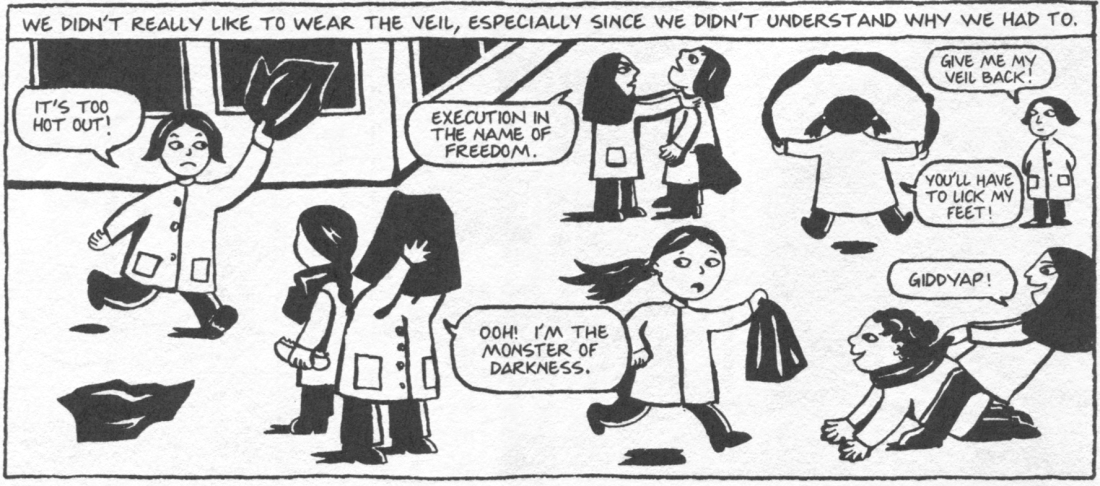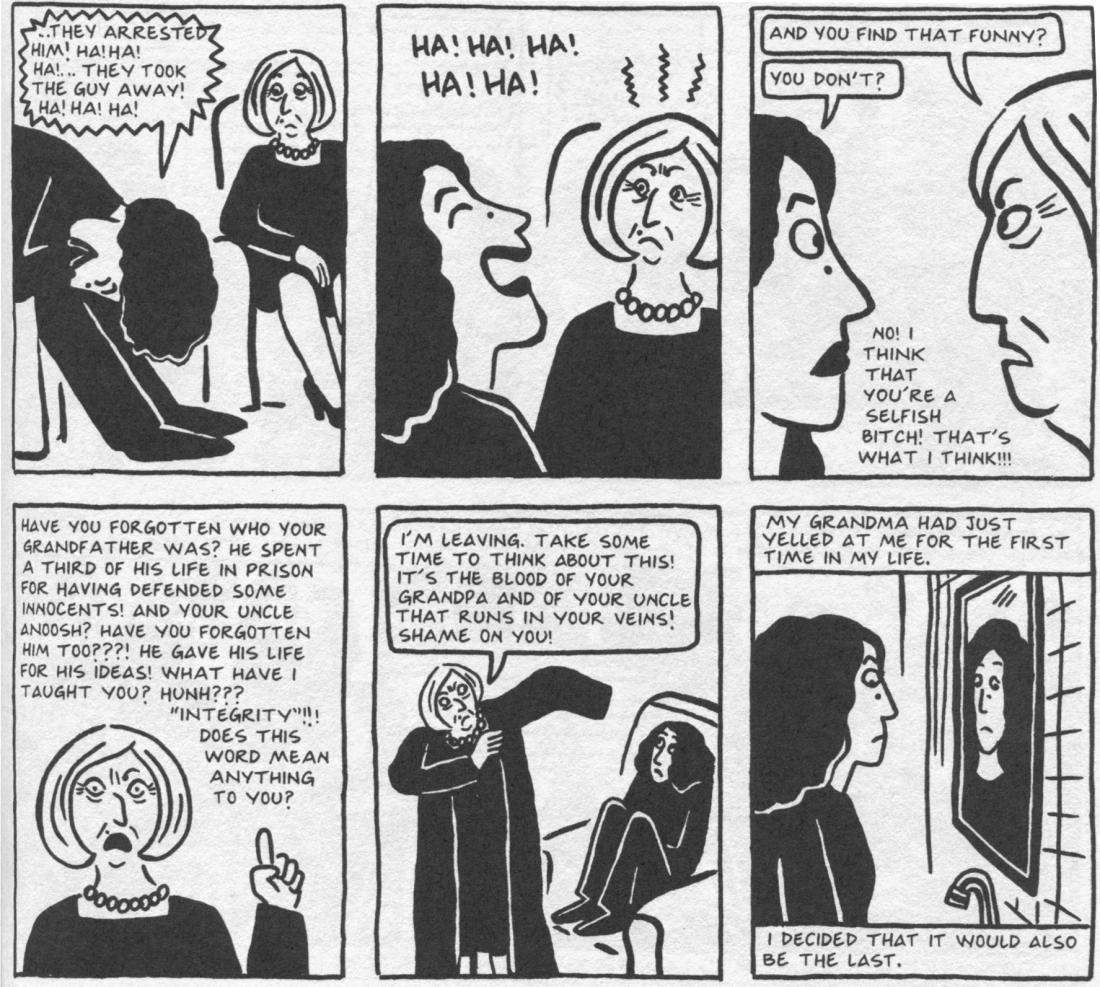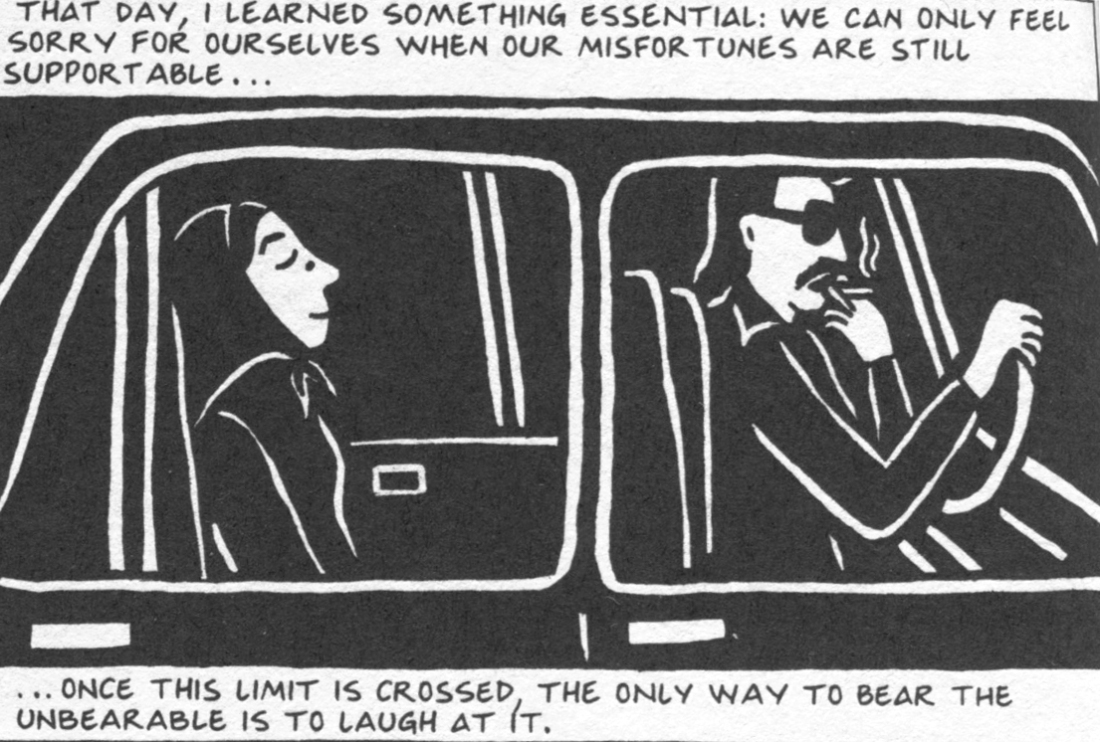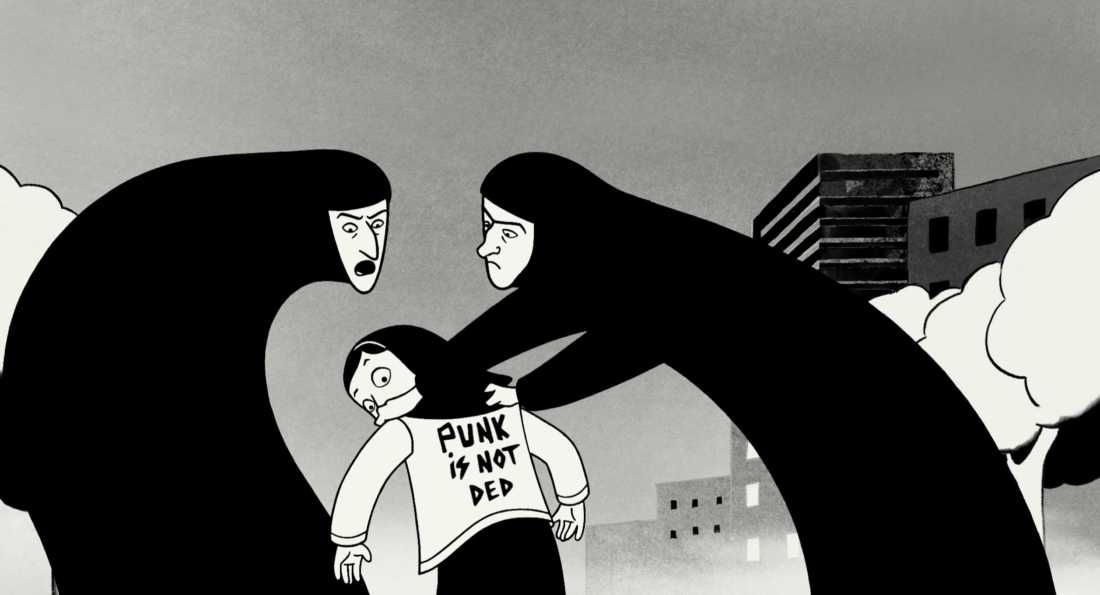melmoth.co is an online archive of some of my more substantial articles and reviews.
For daily updates, please follow my blog: melmoth.blog
Everyone needs to take a look at the world through the eyes of a refugee.
Rating: 5/5 essential reading
Given my serious commitment issues, I’ve never dreamed of joining a book club. Yet, in June, I decided that it was time to broaden my literary horizons, and jumped onboard Our Shared Shelf – Emma Watson’s feminist bookclub.
Emma’s choice this month was Marjane Satrapi’s autobiographical graphic novel “The Persepolis”. A story of a girl, growing up in a country devastated by revolution and war is an apt choice, given the current state of the world affairs. I commend Watson on choosing to focusing the attention of her huge following on this subject.

Overview
If I am being completely honest, “The Persepolis” is the most depressing thing I have read in a very long time. Even so, I would highly recommend this book. Everyone needs to take a look at the world through the eyes of a refugee.
The unconventional format (a comic book) makes “The Persepolis” very accessible. I finished it in three sittings, and I could have finished it in one go, but I felt the need to step away and reflect on what I had read.

Though “The Persepolis” is divided into two volumes, the story actually breaks into three parts: Marjane’s childhood in the war-torn Iran, her adolescence as a refugee in Vienna, and her subsequent return to Iran as an adult.
Originally published in 2000, “The Persepolis” was adapted into an animated film, written and directed by Satrapi and Vincent Paronnaud. The film received an Oscar nomination at the 80th Academy Awards.
The Best Bits
“The Persepolis” takes and honest look at the realities of war, with many shocking events described with brutal honesty. The most disturbing incident, however, takes place towards the end of the book, when, in one fell swoop, Marjane betrays everything she and her family stand for with one selfish and cruel action (I’m not going to spoil it for you). It made some readers, who had been rooting for Marjane through the story, turn their backs on her in the end. I respect Satrapi for not shying away from this episode.

As an immigrant, I empathised with Marjane’s struggle to belong. The confusion and the sense of displacement, that often goes hand in hand with growing up in a foreign country, is portrayed very accurately in “The Persepolis”.
Marjane’s family is incredible, and her parents are truly remarkable people. It’s one thing to be supportive of your wilful daughter in a peaceful, modern country. Encouraging independent thought and a rebellious attitude in the midst of an oppressive regime is a whole other kettle of fish.

